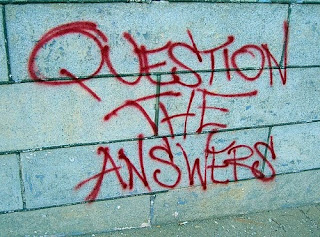Thinking requires academic training distinct from memorizing facts.
"A liberal [arts] education programme is broad-based and rigorous and will nurture critical and creative thinking, with a strong focus on values and ethics," said Singapore Management University (SMU) President Professor Howard Hunter.
I am fascinated by the implications of SMU offering liberal arts programmes. As a liberal arts graduate ('do you want fries with that?!'), I am a believer in a holistic educational approach.
In the early 2000s, Singaporean finance professionals proudly claimed that the city-state has the highest number of Chartered Financial Analysts (CFAs) per-capita in the world. Even if not true, Singapore certainly must be near the top.
Undoubtedly, the number of CFAs in Singapore is a proud distinction for the city. It feeds the growth of the domestic financial services industry.
However, the needs of a modern knowledge economy are varied. Knowledge itself is not scarce. On the contrary, information is plentiful, cheap and easily accessible.
It's how facts are applied and converted to economic opportunity which is critical. Conversion requires creative thinking. It requires confidence. It requires communication skills.
Ask a CFA to calculate the risk of an investment portfolio and more than likely you will get a correct answer. The CFA who stands out will suggest how to adjust the portfolio to reduce the risk, without waiting to be asked.
I speculate when stating that there is link between Hong Kongers' appetite for risk and its position as a larger financial centre than Singapore. After all, Singapore has an ample pool of savings and a government committed to developing the financial infrastructure.
Singapore got left behind in the league of financial capitals.
Singapore has developed a successful high technology manufacturing and research base. Going by anecdotal evidence, much of the research is conducted by foreign academics.
There are significant debates surrounding Singapore's educational system, including the study of mandarin. Much has been achieved to create a more open system. The domestic arts scene is a beneficiary.
More must be done. Greater academic freedom translates into successes in the modern economy. It encourages entrepreneurship. A sceptical mind pushes the limits of progress and opens social barriers in a constructive manner.
The multinational corporation, a bedrock of Singapore's economy, will find more reason to establish regional headquarters and recruit in the republic, i.e. employment.
A more open educational system does have side effects. Singaporeans will ask difficult questions outside of the scripted dialogue spoken in Parliament.
Some might even expect answers to awkward questions!

















No comments:
Post a Comment